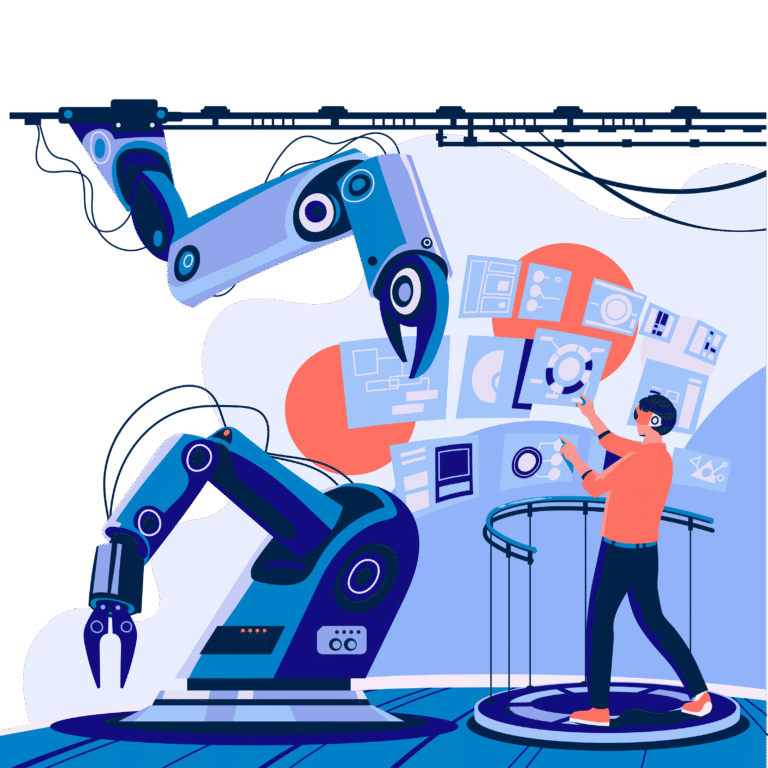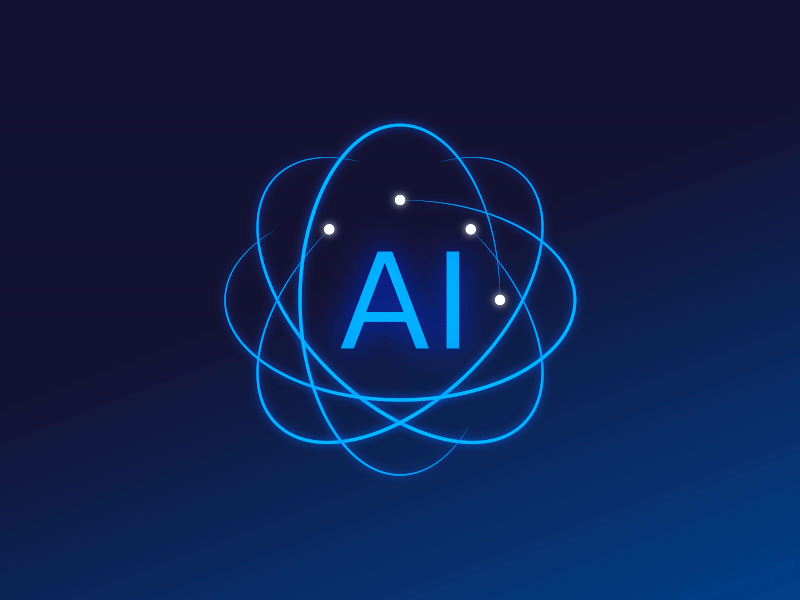Advanced Master Program in AI-Driven AutoCAD Design
- Overview of AutoCAD in modern industries
- Role of AI in CAD automation
- Onshape cloud-based collaborative design
- Autodesk AI feature configuration
- Design accuracy, automation, workflows
AutoCAD Foundations
Module 1: AutoCAD
- Interface, workspace customization
- Templates, units, limits
- AI-assisted drawing startup
Module 2: Drawing & Geometry Creation
- Lines, rays, construction lines
- Points, donuts
- Helix, divisions
- Revision clouds
- AI-based geometry correction
Module 3: Shape Creation – 2D & Basic Geometry
- Rectangles, triangles
- Circles and variants
- Arcs and variants
- Ellipse techniques
- Polygons (inscribed/circumscribed)
Module 4: Editing Tools
- Move, copy, rotate, scale
- Stretch, lengthen
- Trim, extend, break
- Blend curves
- AI-driven auto-editing
Annotation, Documentation & Layers
Module 5: Dimensioning & Measurement
- AI dimension suggestions
- Dimension styles
- Baseline, continued dimensions
- Primary/alternate units
- Tolerances
Module 6: Hatching & Boundaries
- Hatch creation
- Gradients
- Hatch editing
- AI-pattern recommendation
Module 7: Text, Leaders & Annotation Management
- Text alignment tools
- Multi-leader styles
- AI-driven formatting
- Layer management
- Annotation scaling
Blocks, References & Collaboration
Module 8: Blocks, Attributes & Dynamic Tools
- Block creation
- Dynamic blocks
- Attribute editor
- AI-optimized block Positioning
Module 9: External References (Xrefs)
- Attach, overlay, bind
- Managing large-scale drawings
- DWG, DWF, PDF underlays
- AI-based cleanup
Module 10: Layouts, Sheets & Plotting
- Creating drawing sheets
- Multiple layout management
- CTB/STB plotting
- Publishing PDFs
- Smart sheet automation
3D Design & Modeling
Module 11: 3D
- 3D interface & coordinate systems
- View controls
- Visual styles
Module 12: Solid Modeling
- Extrude, revolve
- Sweep, loft
- Fillets & chamfers in 3D
Module 13: Surface & Mesh Modeling
- Surface creation
- Converting between mesh/solid/surface
- Organic modeling techniques
Module 14: 3D Rendering & Visualization
- Lighting and materials
- Cameras
- Rendering high-quality visuals
- AI-generated rendering presets
Onshape Cloud CAD Mastery
Module 15: Onshape Fundamentals
- Cloud workspace
- Version control
- Real-time collaboration
Module 16: Onshape Part Design
- Sketching
- Part modeling
- Parametric & constraint-based modeling
Module 17: Onshape Assemblies
- Mates & joints
- Assembly structure
- Interference detection
Module 18: Onshape Drawings & Documentation
- 2D drawings from 3D models
- GD&T basics
- Bill of Materials (BOM) generation
Engineering, Advanced Tools & AI
Module 19: Geometric Dimensioning & Tolerancing
- Symbols, datums
- Feature control frames
- Tolerancing for manufacturing
Module 20: Manufacturing Drawings
- Industrial drafting standards
- Welding symbols
- Sectional and detailed views
Module 21: Sheet Metal Design
- Sheet metal modeling
- Bend tables
- Flattened view creation
Module 22: Simulation & Analysis
- Stress analysis basics
- Interference detection
- Assembly simulation in Onshape
Module 23: AI-Powered CAD Enhancement
- Smart constraints
- AI-based error detection
- Auto-dimensioning
- Predictive modeling
Module 24: BIM & Interoperability
- BIM fundamentals
- DWG for construction documentation
Professional Training and Career Development Programs
- Technical Resume
- Soft Skills Development
- Personality Skills Development
- Technical Projects
- Technical Mock Interview
- Industrial Project
- Placement Training
- Internship
- Certification
Advanced Master Program in AI-Driven E-CAD Design
FOUNDATION – E-CAD
Electrical CAD Design Fundamentals
- Module 1: E-CAD fundamentals
- Module 2: Electrical drawing standards (IEC 60617, IEEE/ANSI, DIN, IS)
- Module 3: Industrial automation & plant electrical applications
- Module 4: Symbols, notations & schematic conventions
Templates, Standards & Symbol Libraries
- Module 5: Standard drawing setup
- Module 6: Custom template creation
- Module 7: Layer & wire standards
- Module 8: Symbol library creation & management
- Module 9: IEC / IEEE / IS standards integration
AUTOCAD ELECTRICAL – CORE WORKING TOOLS
AutoCAD Electrical Tools
- Module 10: Electrical Project Manager
- Module 11: Schematic Editor
- Module 12: Circuit Builder
- Module 13: Symbol Builder
- Module 14: PLC I/O drawing module (documentation only)
- Module 15: Panel layout tools
- Module 16: Terminal strip editor
- Module 17: Automated wire numbering
- Module 18: Component tagging & cross-referencing
- Module 19: Title block updates
- Module 20: Real-time Error Rule Check (ERC)
- Module 21: BOM & report generation
ELECTRICAL COMPONENTS & DEVICES
Electrical Components – Industrial Automation
- Module 22: Switchgears: MCB, MCCB, ACB, RCCB
- Module 23: Relays & contactors
- Module 24: Transformers
- Module 25: Motors, starters & VFDs
- Module 26: Smart sensors & transmitters
Component Creation & Library Management
- Module 27: Manual component drawing
- Module 28: Intelligent symbol development
- Module 29: Assigning ratings: voltage, current & load
- Module 30: Database-linked components
SCHEMATIC & CONTROL DESIGN
Wiring & Cabling Standards
- Module 31: Wire numbering rules
- Module 32: Cable tagging & ferrule planning
- Module 33: AWG / SWG standards
- Module 34: Insulation & shielding classification
- Module 35: Armor cable representation
Control Circuits, Ladder & PLC Drawings
- Module 36: Ladder diagram Overview
- Module 37: Contacts, coils, relays & interlocks
- Module 38: PLC rack & I/O module drawings
- Module 39: PLC terminal wiring schematics
- Module 40: I/O assignment drawings
- Module 41: Sensor-PLC-Actuator wiring layouts
Power Distribution & Protection Circuits
- Module 42: Single Line Diagrams (SLD)
- Module 43: Load calculations
- Module 44: Power factor correction layouts
- Module 45: MCC feeder schematics
- Module 46: Protection coordination drawings
Control & Instrumentation Drawings
- Module 47: Control wiring schematics
- Module 48: Field instrumentation drawings
- Module 49: RTD & thermocouple wiring
- Module 50: Loop diagrams (4–20 mA, 0–10 V)
- Module 51: Redundant power system layouts
ADVANCED ELECTRICAL CAD
AI in E-CAD Design
- Module 52: AI auto-routing
- Module 53: Intelligent error detection
- Module 54: Predictive load analysis
- Module 55: Generative schematic layouts
Documentation, Reports & QC
- Module 56: BOM auto-generation
- Module 57: Wiring schedules
- Module 58: Panel schedules
- Module 59: QC checklist creation
- Module 60: Electrical compliance audits
Advanced E-CAD Techniques
- Module 61: 2D & 3D electrical layouts
- Module 62: Cable tray routing
- Module 63: Dynamic symbol linking
- Module 64: Cloud-based team collaboration
Project Management in Electrical CAD
- Module 65: Electrical drawing workflows
- Module 66: Revision control & data management
- Module 67: As-built documentation
- Module 68: Multi-discipline coordination
EPLAN & AUTOMATION DOCUMENTATION
EPLAN Fundamentals
- Module 69: EPLAN environment setup
- Module 70: Device tagging & numbering
- Module 71: Intelligent schematic drafting
- Module 72: Macro-based automation
EPLAN Advanced Workflows
- Module 73: Automated report generation
- Module 74: PLC device documentation (no logic programming)
- Module 75: Wiring & terminal strip schedules
- Module 76: Control cabinet reports
Panel Layout & Cabinet Design
- Module 77: Control panel layouts
- Module 78: Cable duct & busbar routing
- Module 79: Earthing layouts
- Module 80: Heat dissipation & ventilation design
Control System Documentation
- Module 81: HMI tag list preparation
- Module 82: PLC interface drawings
- Module 83: Energy monitoring diagrams
- Module 84: Commissioning packages
BIM ELECTRICAL SYSTEMS
Cable Routing & Raceway Design
- Module 85: Cable trays & conduits
- Module 86: Raceway sizing coordination
- Module 87: Voltage-drop drawing representation
- Module 88: Cable scheduling
INDUSTRIAL ADVANCED SYSTEMS
Industrial Power Systems
- Module 89: HT–LT power distribution drawings
- Module 90: Substation layouts
- Module 91: Transformer protection schematics
Earthing & Lightning Protection
- Module 92: Earthing systems (TT, TN, IT)
- Module 93: Ground grid designs
- Module 94: Lightning arrestor layouts
- Module 95: Surge protection schematics
Electrical Estimation & Costing
- Module 96: Auto-BOM costing
- Module 97: Cable, panel & switchgear costing
- Module 98: Load forecasting
- Module 99: Electrical take-off techniques
INDUSTRIAL ADVANCED SYSTEMS
Onshape + AutoCAD Electrical
- Module 100: Cloud-based drafting platforms
- Module 101: AI-assisted panel & circuit design
- Module 102: Digital twin electrical modeling
- Module 103: Predictive maintenance documentation
Professional Training and Career Development Programs
- Technical Resume
- Soft Skills Development
- Personality Skills Development
- Technical Projects
- Technical Mock Interview
- Industrial Project
- Placement Training
- Internship
- Certification
Advanced Master Program in Embedded Systems with Artificial Intelligence
Core Foundations
Module 1: Embedded Systems
- Embedded System Architecture
- Real-world applications
- Embedded system architecture
- CPU architectures: ARM, RISC-V
- Memory types: Flash, EEPROM, SDRAM
Module 2: Embedded C & Programming Foundations
- ANSI C and Embedded C
- Data types & Variables
- Control Flow Statements
- Pointers, functions
- Searching & Sorting Algorithm
- Bitwise operations
- File Handling & Dynamic Memory Allocation
Module 3: Electronics for Embedded Engineers
- Passive & active components
- Analog vs Digital electronics
- Sensors & actuators
Microcontroller & Hardware Platforms
Module 4: Microcontrollers & Processor Architectures
- 8051
- ARM Cortex-M series
- RISC-V
- Interrupts, timers, watchdogs
Module 5: Development Boards
- Arduino
- ESP32 / ESP8266 Wi-Fi boards
- Raspberry Pi
- Embedded Linux & Raspbian OS
- Programming with Raspberry Pi
Module 6: Memory & Storage Systems
- Flash memory
- File systems
- Bootloaders
Communication & Interfaces
Module 7: Peripheral Interfaces
- GPIO, ADC, DAC
- PWM, external interrupts
- Sensor interfacing
Module 8: Serial Communication Protocols
- UART, SPI, I2C
- One-Wire, CAN Bus
- MODBUS, Profibus
- LIN Bus (Automotive)
Module 9: Wireless Protocols
- Wi-Fi, BLE, NFC
- ZigBee, LoRa, GSM/GPRS
- LTE/5G modules
- MQTT, CoAP, HTTP
Real-Time & OS-Level Development
Module 10: Real-Time Operating Systems (RTOS)
- RTOS fundamentals
- Tasks, semaphores, queues
- FreeRTOS in-depth programming
- Scheduler, priority inversion
- RTOS debugging
Module 11: Device Drivers
- Character drivers
- Interrupt-driven drivers
- Memory-mapped I/O
- Debugfs, sysfs
PCB & Hardware Engineering
Module 12: PCB Design
- Schematic design
- Altium / KiCad / Eagle
- Routing & power integrity
- EMC / EMI design
Module 13: Hardware Prototyping & Testing
- PCB manufacturing flow
- Assembly methods
- Testing strategies (DFM, DFA, DFT)
Automotive Embedded Systems
Module 14: Automotive Standards
- AUTOSAR
- Functional Safety – ISO 26262
- CAN, LIN, FlexRay protocols
Module 15: Automotive Applications
- ECU programming
- Battery Management Systems
- EV motor controllers
Control Systems
Module 16: Control Systems
- PID control
- Closed-loop vs open-loop systems
- Stability analysis
AI + Embedded Systems
Module 17: Generative AI in Embedded Systems
- Edge AI concepts
- ONNX on microcontrollers
- Real-world predictive applications
Module 18: Computer Vision on Edge Devices
- OpenCV, Mediapipe
- ESP32-CAM projects
- Low-power CV models
Professional Training and Career Development Programs
- Technical Resume
- Soft Skills Development
- Personality Skills Development
- Technical Projects
- Technical Mock Interview
- Industrial Project
- Placement Training
- Internship
- Certification
Advanced Master Program in PCB Design with Artificial Intelligence
PCB Designing Concepts
- Module 1: PCB & PCB Industry
- Module 2: PCB vs PWB (Printed Circuit Board vs Printed Wiring Board)
- Module 3: Types of PCBs
- Single Layer
- Double Layer
- Multi-Layer
- Rigid, Flex & Rigid-Flex
- Module 4: PCB Materials
- Module 5: PCB Standards & Certifications
- Module 6: Electronic Design Automation (EDA)
- Module 7: Overview of EDA Tools
- Module 8: SPICE & PSpice Simulation
- Module 9: PROTEUS – Circuit Simulation & PCB Design
- Module 10: PCB Design Workflow
Electronic Components & Package Libraries
- Module 11: Active Components – Overview
- Module 12: Diodes – Types & Applications
- Module 13: Transistors – BJT & Applications
- Module 14: MOSFET – Metal Oxide Semiconductor Field Effect Transistor
- Module 15: LED Drivers – Circuit Types & Control Methods
- Module 16: SCR & TRIAC – Thyristor Power Devices
- Module 17: IC Categories – Analog, Digital & Mixed-Signal
- Module 18: Passive Components
- Resistors
- Capacitors
- Inductors
- Transformers
- Speakers & Buzzers
Component Package Types – Through-Hole
- Module 19: Through-Hole Package Fundamentals
- Module 20: Axial Lead Packages
- Module 21: Radial Lead Packages
- Module 22: SIP – Single In-line Package
- Module 23: DIP – Dual In-line Package
- Module 24: TO – Transistor Outline Packages
- Module 25: PGA – Pin Grid Array
Component Package Types – Surface-Mount (SMD)
- Module 26: MELF – Metal Electrode Leadless Face
- Module 27: LCC – Leadless Chip Carrier
- Module 28: SOIC – Small Outline Integrated Circuit
- Module 29: QFP – Quad Flat Package
- Module 30: TQFP – Thin Quad Flat Package
- Module 31: BGA – Ball Grid Array
- Module 32: LGA – Land Grid Array
- Module 33: QFN – Quad Flat No-Lead
- Module 34: PLCC – Plastic Leaded Chip Carrier
Libraries & Standards
- Module 35: Component Footprint Creation Standards – IPC-7351
- Module 36: PCB Library Creation & Management
Tools & Development Platforms
- Module 37: PROTEUS for PCB
- Module 38: Eagle
- Module 39: Circuit Simulation Tools
- Module 40: Working with 3D PCB Viewers
Schematic Design
- Module 41: Understanding Electronic Circuits
- Module 42: Reading Circuit Diagrams
- Module 43: Schematic Capture – Best Practices
- Module 44: Hierarchical Schematic Design
- Module 45: Net Labeling & Pin Terminators
- Module 46: Electrical Rule Check (ERC)
- Module 47: Symbol Creation
- Module 48: Library Management
- Module 49: Multi-Sheet Schematic Handling
PCB Layout Fundamentals
- Module 50: Design Rule Check (DRC)
- Module 51: Understanding PCB Layers
- Signal Layers
- Ground Layers
- Power Planes
- Mechanical Layers
- Silkscreen & Solder Mask
- Module 52: PCB Layer Stack-up
- Module 53: Component Positioning Techniques
- Module 54: Position Optimization for Manufacturing
- Module 55: Routing
- Module 56: Manual Routing Techniques
- Module 57: Auto-Routing & Its Limitations
- Module 58: Via Types – Through, Blind, Buried & Microvias
- Module 59: Via Current Handling
- Module 60: Creating Copper Pours
- Module 61: PCB Trace Width & Clearance Calculation
Advanced PCB Layout Design
- Module 62: High-Speed PCB Design
- Module 63: Differential Pair Routing
- Module 64: Impedance Matching
- Module 65: Controlled Impedance PCB Design
- Module 66: Length Tuning & Skew Control
- Module 67: High-Speed Interfaces – USB, HDMI, DDR, PCIe
- Module 68: Crosstalk & Noise Mitigation
- Module 69: Clock Routing Techniques
- Module 70: Power Integrity Design
- Module 71: Grounding Strategies – Star Ground & Flood Ground
- Module 72: EMI / EMC Compliance Design
- Module 73: Shielding Methods
- Module 74: ESD Protection Strategies
- Module 75: Multi-Layer PCB Routing Strategies
- Module 76: Thermal Management – Heat Sinks & Thermal Vias
- Module 77: Thermal Simulation Techniques
- Module 78: Current Carrying Capacity & Trace Heating
Fabrication & Manufacturing
- Module 79: PCB Manufacturing Processes
- Module 80: PCB Lamination & Drilling
- Module 81: Surface Finish Types – HASL, ENIG, OSP, Immersion Silver
- Module 82: Solder Mask & Silkscreen Application
- Module 83: Panelization Techniques
- Module 84: Gerber File Generation
- Module 85: Drill File Preparation
- Module 86: Design for Manufacturing (DFM) Verification
- Module 87: PCB Stack-Up Specifications
- Module 88: PCB Quality Grading
Assembly & Testing
- Module 89: SMT Assembly Process
- Module 90: Through-Hole Assembly Process
- Module 91: Reflow Soldering
- Module 92: Wave Soldering
- Module 93: Pick-and-Place File Creation
- Module 94: Bill of Materials (BOM) Creation
- Module 95: Assembly Drawings
- Module 96: Test Points & Debug Pads
- Module 97: Continuity Testing
- Module 98: Functional Testing
- Module 99: Automated Optical Inspection (AOI)
- Module 100: In-Circuit Testing (ICT)
- Module 101: Boundary Scan Testing – JTAG
PCB Troubleshooting & Failure Analysis
- Module 102: Common PCB Faults
- Module 103: Soldering Defects & Detection
- Module 104: Component-Level Issues
- Module 105: PCB Repair Techniques
- Module 106: Thermal Damage Troubleshooting
- Module 107: Signal Integrity Failure Analysis
- Module 108: Power Integrity Failure Diagnosis
Industry & Advanced Applications
- Module 109: IoT Hardware PCB Design
- Module 110: Automotive PCB Standards
- Module 111: Aerospace & Defense PCB Requirements
- Module 112: Medical Electronics PCB Rules
- Module 113: Wearable Device PCB Design
- Module 114: RF PCB Design Basics
- Module 115: Antenna Design Integration
- Module 116: High-Voltage PCB Design
- Module 117: Mixed-Signal PCB Design
- Module 118: Designing for Manufacturability (DFM)
- Module 119: Designing for Testability (DFT)
Bonus – AI + PCB Modules
- Module 120: AI-Based Schematic Generation
- Module 121: AI-Enhanced Auto-Routing
- Module 122: Generative AI for Circuit Design
- Module 123: PCB Error Prediction Using Machine Learning
- Module 124: AI Tools for Gerber Verification
Professional Training and Career Development Programs
- Technical Resume
- Soft Skills Development
- Personality Skills Development
- Technical Projects
- Technical Mock Interview
- Industrial Project
- Placement Training
- Internship
- Certification
Registration Date
31/01/2026
Joining Date

Overview Zenjade Automation Technology Private Limited
Industrial Automation generally refers to the science and technology of process control and includes the control of chemical and petrochemical plants, Oil refineries, iron and steel plant, Power plants, cement mills, Paper pulp and paper mills water and waste water treatment plants and many other sectors. The basic objective of automation is identifying the information flow and manipulates the material and energy flow as given process in a desired way. PLC, SCADA,VFD and HMI plays an important role in automating industrial system. Automation of many different processes, such as controlling machines or factory assembly lines, is done through the use of small computers called as Programmable Logic Controller (PLC). This is actually a control device that consists of a programmable microprocessor, and is programmed using a specialized computer language. Today, Programmable Logic Controllers deliver a wide range of functionality, including basic relay control, motion control, process control, and complex networking, as well as being used in Supervisory Control and Data Acquisition Systems and Distributed Control Systems.
Looking for Best AUTOMATION Training in Chennai?
ZENJADE AUTOMATION TECHNOLOGY PRIVATE LIMITED is No 1 AUTOMATION training in Chennai offering professional training by experts.
What is Industrial Automation?
ZENJADE AUTOMATION TECHNOLOGY PRIVATE LIMITED is an excellent Automation training in Chennai with superior integrated infrastructure and newly designed labs for students to practice and pursue training for multiple trainings at Chennai. ZATPL train many students around the globe every year for the Automation training at an affordable price which is customised as per each candidate’s requirement of modules and content. Automation training involves “Hands-on experience”, we believe in practice what you preach and therefore each candidate is encouraged to practically conduct each topic that is discussed for better understanding of real-world scenario automation. This practice of comprehensive training allows candidate to gain all the concepts and skills effectively and to later efficiently apply on their field of work. ZATPL is one of the best automation training in Chennai with 100% placement assistance. ZATPL has well structure modules and training program designed for both students and working professionals separately. At ZATPL automation training is conducted during all 5 days, and special weekend classes. Can also be arranged and scheduled. We also provide fast track training programs for students and professionals looking to upgrade themselves instantly.
What is Future of Industrial Automation?
Although industrial automation in manufacturing in not without its detractors (such as an unsubstantiated claim that it will lead to mass unemployment), its future looks very bright. Industrial robots of the future will be multi-functional so that the same machine can be put to several different uses. They will have many capabilities associated with human workers, such as the ability to make decisions and to work autonomously. They will also have self-diagnostic and predictive maintenance capabilities. Thanks to industrial automation of manufacturing, the factory of the future will be more efficient in the utilization of energy, raw material and human resources. Also, contrary to popular belief, the experience so far has shown that automation will not cause mass unemployment. On the contrary, the mass use of robots will create more jobs. Humans and robots will work together to create a more efficient and productive workspace.


Why AUTOMATION Training In Chennai At ZENJADE AUTOMATION TECHNOLOGY PRIVATE LIMITED ?
Chennai is the commercial hub of South India and its home to global manufacturing companies. Most of the companies looking for trained engineers in the field of industry automation. But there is shortage for trained engineers in the field of automation. To cater the problem, ZENJADE AUTOMATION TECHNOLOGY PRIVATE LIMITED is offering Best Automation Training in Chennai by industry experts designed to fill the vacuum of practical knowledge and industry automation demands. ZENJADE AUTOMATION TECHNOLOGY PRIVATE LIMITED is best Automation Training offering AUTOMATION Training in Chennai with automation theory and practical.
Core Placements in ZENJADE AUTOMATION TECHNOLOGY PRIVATE LIMITED
- Automation Industry
- Piping Industries
- Powerplants
- Robotics
- Shipyards
- Oil & Gas
- Oil Refinery
- Manufacturing Plant
- Food Industry
- Marine Piping
- Automation Testing
- Control Panel
- Control Panel Assemble
- Electrical Installation
- Electrical Services
- Electrical Commisioning
- Panel Wiring
- Industrial Automation
- Plc Maintainance & Installation
- Rig Automation
- Scada Development
- Quality Control & Documentation





